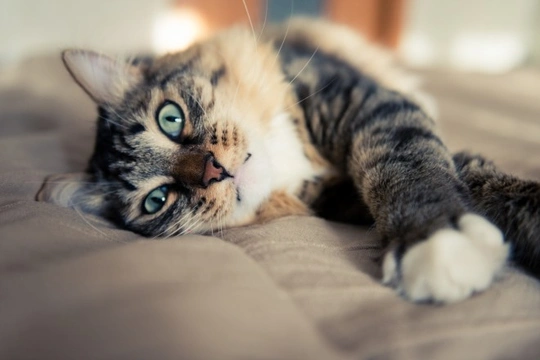Pets
Pets for studWanted petsBreedersAccessories & services
Knowledge hub
Support
Support & safety portal
Hypertrophic Cardiomyopathy in Cats Explained
Hypertrophic cardiomyopathy in cats can be very distressing because all too often the prognosis is never thought to be that good. Most of the time when a cat is diagnosed with the condition they only have anything from 6 months to a year although a few cats succumb a lot sooner. However, with this said the earlier HCM is correctly diagnosed, the better the outcome tends to be for the cat.
The problem is that some cats may develop a mild case which does not progress and therefore for a long time it goes unnoticed. As such cats may already have a more advanced case when the condition is diagnosed. In the advanced stages of HCM, a cat's lungs start to fill with fluid and become very congested. This is when a vet would typically prescribe diuretics and ACE inhibitors to keep them going for a while. Sadly, this type of medication is only effective once the fluid starts to build up in a cat's lungs and not before.
Although this type of medication will keep the fluid from building up in their lungs for a certain period of time, eventually it will start to build up again and this is when no more can be done.
Monitoring Your Cat's Breathing
If your cat has been diagnosed with the condition and they've been put on medication, it is always recommended that you monitor your pet's breathing when they are asleep. If all is well their breathing should be under 30 breaths a minute and the easiest way to count it is over a 15 second period before multiplying the number of breaths by four to get a full minute.
Should you find your pet's breathing is over fifty per minute when they are asleep or just resting quietly, it's a good indication that their lungs are starting to fill up with fluid. As such you should discuss things with your vet. If you find that your cat has trouble breathing or they are breathing extremely rapidly, you would need to get them to the vet as soon as possible to avoid any unnecessary suffering.
Symptoms to Watch Out For
The symptoms can vary quite a lot as it really does depend on the severity of the condition and when it was first diagnosed. The problem is that cats are very good at hiding any symptoms which means many owners only really notice there is something wrong in the advanced stages of HCM. The most noticeable sign is when a cat has real trouble breathing or they might experience paralysis in their hind legs due to a blood clot.
Unlike dogs and humans, when our feline friends suffer congestive heart failure they don't cough but rather breath with open mouths and in some cases cats tend to pant. Another sign there is something terribly wrong is when a cat has trouble walking very far without stopping to catch their breath and recuperate.
Treatments
As previously mentioned. Sadly there is no known cure or treatment at the present time for HCM. However, if the condition is a symptom of another underlying health issue, then treating the primary health issue can often result in partly or completely curing HCM.
The use of diuretics and ACE inhibitors has been seen to be very effective but only when fluid starts to build up in a cat's lungs. In very severecases, a vet might want to remove the fluid via a catheter in order to help a cat breathe more easily.
Some vets recommend using natural supplements to prevent a cat's blood from clotting one of which is called nattokinase rather than use any synthetic drugs. The main goal would be to slow the progress of the condition down while at the same time ensuring a cat still enjoys a good quality of life.
Cats Prone to the Condition
Certain breeds of cat are more predisposed to the condition than others and there is a test available for both Maine Coons and Ragdolls. However, Persians and other oriental breeds as well as American Shorthairs are more prone to developing the condition too. With this said, any cat can get HCM and it typically rears its ugly head when they are in mid-life although it can happen at any age.
Is There any Way of Preventing the Condition?
There is no real way of preventing a cat from developing HCM although careful breeding goes a long way in preventing this genetic disorder being passed down on to any offspring. Cats with the condition should never be used for breeding purposes for this reason.



